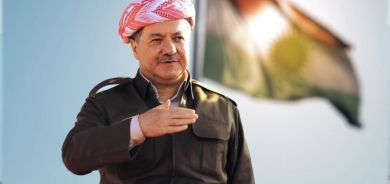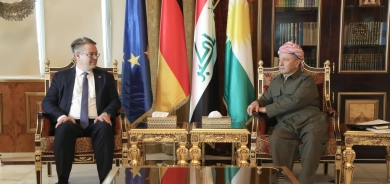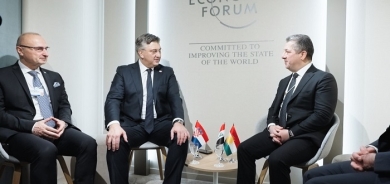Erdogan’s Kurdish Challenges

The emergence of the semi-autonomous Kurdish Regional Government (KRG) in northern Iraq as Saddam Hussein’s regime crumbled did cause some worry and frustration for Turkey. Indeed, the fear that Saddam’s ouster would lead to a de facto independent Kurdish republic in a fragmented Iraq was a major reason why Turkey’s political and military leaders in early 2003 rejected Washington’s request to let U.S-led forces open a northern front in the looming Iraq war.
Relations between Ankara and the KRG since then have been delicate and often turbulent. Turkey has accused Erbil of allowing the PKK to use Iraqi territory as a sanctuary to launch attacks inside Turkey. In 2008, the Turkish military conducted several major punitive missions against alleged PKK strongholds in northern Iraq, and there have been periodic follow up incursions over the past four years.
At the same time, however, a fairly extensive commerce has developed between Iraq’s Kurdish region and Turkey—sometimes to the annoyance of Iraq’s central government in Baghdad. KRG Prime Minister Nechirvan Idris Barzani announced in mid-September that the Kurdish region was now exporting 140,000 barrels of oil a day, following an agreement with the central government, and those exports would increase to 200,000 barrels a day in 2013. Much of that oil is sent through pipelines to Turkey. Other economic ties are also growing at a brisk pace.
But just as tensions between Turkey and the KRG are easing somewhat, the Erdogan government’s worries are increasing in two other areas. As Former U.S. Ambassador to Turkey Morton Abramowitz recently noted in the pages of The National Interest, the PKK’s insurgency “has reemerged with a vengeance.” After “ten years of relative quiet, there is heavy, often sustained fighting and serious casualties.” Erdogan largely has himself to blame for this development. Despite repeated promises to address the desire of Turkey’s Kurdish population for greater political—and especially cultural—autonomy, the government’s efforts at conciliation and reform were half-hearted at best. Now, it appears that the patience of the country’s Kurdish minority may be at an end. Even those Kurds who dislike the PKK and its violent tactics are increasingly frustrated and disillusioned with Ankara.
Erdogan and other Turkish leaders also worry about whether the growing turmoil in neighboring Syria could lead to the creation of another autonomous Kurdish region (or perhaps even a de facto independent Kurdish state) on Turkey’s border. That is not a far-fetched thesis. Syria shows more than a few signs of possible disintegration, and Kurdish leaders in the northeastern portion of the country have taken steps to try to assert political and military control in heavily Kurdish communities. If Syria does disintegrate—or even if the authority of the government in Damascus erodes further—the establishment of a Syrian equivalent of the KRG is a real possibility.
In addition to that development, Erdogan frets about apparent posture of Syria and another neighboring state, Iran, regarding the PKK insurgency. Ankara charges that Bashar al-Assad’s government in Syria is actively aiding the PKK. Those allegations are likely true, since Assad has every incentive to retaliate for Ankara’s extensive aid to the rebel Free Syrian Army’s campaign to overthrow Assad’s regime. There are also indications that the once-promising rapprochement between Ankara and Tehran has come to an end, and that Iran is trying to cause trouble for the Turkish government.
Erdogan faces a crucial challenge in dealing not only with his country’s own Kurdish population, but with the Kurdish people and their leadership in neighboring states. The issues involved are difficult and delicate, and their peaceful, constructive resolution will require deft statesmanship on the part of Erdogan and his government. Thus far, the record is mixed and not especially encouraging. Indeed, recent trends seem to be moving in the opposite direction—toward more tension and conflict.
Ted Galen Carpenter, a senior fellow at the Cato Institute, is the author of nine books and more than 500 articles and studies on international affairs. He is also a member of the editorial board of Mediterranean Quarterly.

 Ted Galen Carpenter
Ted Galen Carpenter











